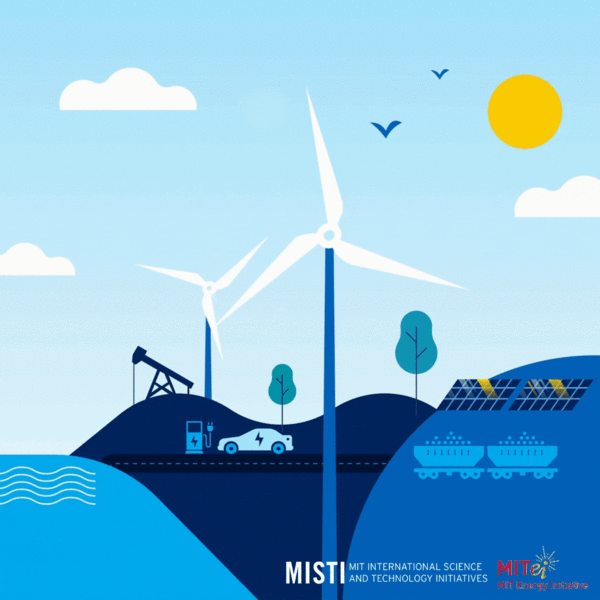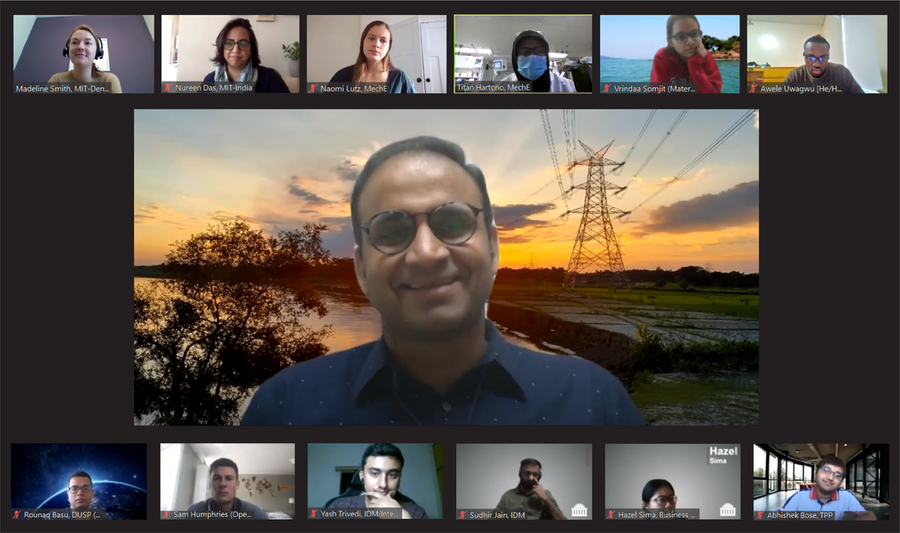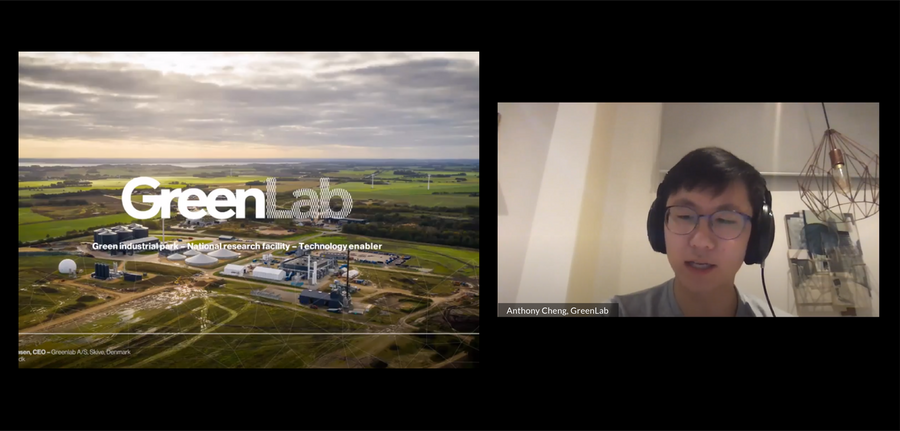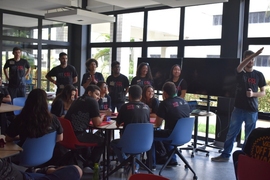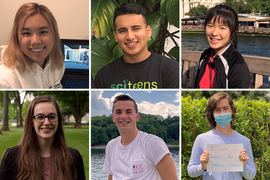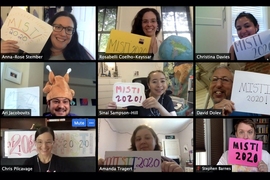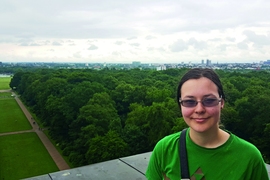While fall typically sees MIT International Science and Technology Initiatives (MISTI) programs gearing up to facilitate international summer internship and research experiences for MIT students, this year’s changing global circumstances presented challenges to making in-country internships happen — but they also offered new opportunities for students to engage with organizations and leaders overseas.
Combining MISTI’s network of hosts, students’ interests in energy, the broader energy community at MIT, and the ease of connecting internationally via remote platforms, the inaugural run of MISTI Career Conversations: Energy was born.
MISTI operates in over 25 different countries, offering a number of programming options to the MIT community, including internships and research, faculty research, and teaching programs. Many of these provide the opportunity to collaborate with industry or research institutions on energy topics.
“Our aim was to give our students the same opportunities to build their networks and share ideas with industry leaders through a virtual platform, as they would have during a MISTI internship,” says April Julich Perez, MISTI’s executive director. “While the Covid-19 pandemic has put a damper on international travel, programs such as MISTI Career Conversations have made it possible to bring our students and global partners together in exciting new ways.”
The initial series of conversations focused on Denmark and India, two countries making critical strides in the movement toward green energy, but with their own methods and targets. Future series will expand to other topics and regions.
As an emerging economy with a rapidly growing population, India has set a target of 175 gigawatts (GW) of renewable energy capacity by 2022. The current areas of focus are wind and solar energy, with a strong emphasis on building out the transmission infrastructure. Indian organizations represented in this series included: Sterlite Power; Shell Research Technology Center; Tata Power; and ReNew Power.
While it faces different challenges than India, Denmark has set ambitious goals for itself to offset the progression of climate change. By 2050, Denmark aims to be fossil fuel-free, and already around half of Denmark’s energy needs are being met by renewable energy, most of that from wind power. Three companies represented Denmark during the first MISTI Career Conversations: Energy series: Ramboll, the international engineering consultancy with a focus on the green transition; Ørsted, a global leader in wind power and the largest energy company in Denmark; and GreenLab, a green industrial park and power-to-x facility.
Each company shared their unique and innovative approaches to the energy sector and the transition to renewable energy, both within the context of their country and the world. This allowed participants to ask questions related to their academic interests and future career goals.
“As an alum, it was rewarding to connect with current students and reconnect with the latest updates from campus,” says Manya Rajan SM '10, chief asset officer at Sterlite Power. “I felt very comforted by the fact that the energy ecosystem is as thriving and dynamic as it can be in context of today's situation. I look forward to staying in touch with the students through MISTI's various platforms and learning about the amazing work they are doing, and will do.”
A cohort of dedicated students, comprised of undergrad and graduate students from a variety of disciplines, was formed. All shared an interest in energy and the desire to network with professionals while discussing real-world issues.
“I was very keen on learning about the different energy solutions being deployed in different parts of the world, and the type of expertise, thinking, and experience it takes to make an impact in the field,” says Awele Uwagwu, a senior pursuing a BS in chemical engineering and minor in energy studies. “Throughout the series, I did get this insight. It was clear to see that a country like India has significantly different challenges than a country like Denmark. I also learned about the different types of energy solutions deployed based on context, and I’m getting a better picture of where I want to fit into this.”
Titan Hartono, a PhD student in mechanical engineering, reflected on being able to connect her research on photovoltaics to the “bigger picture” of energy challenges we are facing globally. “Working in a lab and conducting experiments created this sense of disconnection with what is actually going on in the electricity power market,” she explains. “Getting connected with different companies in India and Denmark was exactly the opportunity I was looking for.”
“I've always loved engaging with fellow MIT students about topics of energy and sustainability as a materials science major and energy studies Minor, and I'm very glad I was able to do so as part of the MISTI Career Conversations series,” says Anthony Cheng '20, who interned with GreenLab through MIT-Denmark and later joined their team in Skive, Denmark. “Through MISTI's excellent connections and support, I've been working at the Danish green industrial park startup GreenLab for the past few months, and it was exciting to be able to help share GreenLab's vision for making an impact on industrial energy transitions and development.”
Anurit Kanti, deputy manager sustainability at ReNew Power, notes the value of industry-academia collaboration: "Engaging with MIT students from diverse backgrounds on various aspects of the energy transition, including digitization of the energy sector, was extremely fruitful. The discussion with the students was stimulating and it makes us hopeful for top talent to be involved in this sector, which in turn will catalyze the energy transition.”
Providing students an opportunity to connect their focus of study to real-life approaches in the energy sector and the energy transition conversation embodies the MIT spirit of “mens et manus,” (“mind and hand”). Antje Danielson, director of education at MIT Energy Initiative (MITEI), notes, “It is important for the outlook of our students to showcase companies that have clear strategies to achieve set climate goals. Our students want to know that they will have opportunities to contribute to a meaningful, visionary effort like the energy transition once they graduate.”
Moving forward, MISTI and MITEI will continue to provide students with an opportunity to engage with leaders in the energy sector through robust programming and field trips that capitalize on the pressing issues both in the United States and around the world.
